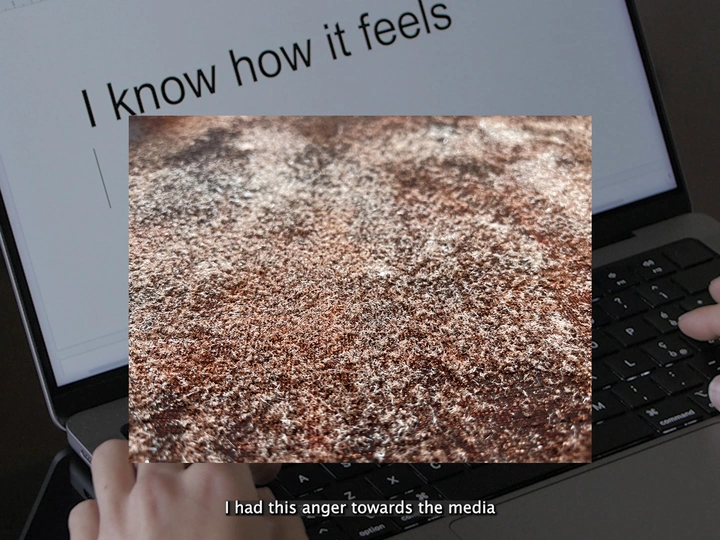States dissolve _ Evaporating Borders

Sofia Gozzi
Sofia Gozzi and Silvia Cipelletti, originally from Milan, trained in architecture at the Mendrisio Academy. They have been developing a shared artistic research since 2019. The multidisciplinary work of their artistic collective combines installations, writing, moving images, and figurative art, exploring unstable geographies and the aesthetics of disappearance. The collective emerged from a series of reflections on the immediate, lived experience of pressing contemporary issues, with the intention of exploring their layered environmental and socio-political dimensions.
Silvia is a visual essayist and architect researching border landscapes through the video essay; currently a teaching assistant and a PhD candidate for the Swiss National Science Foundation research project “The Video Essay: Memories, Ecologies, Bodies”, led by Prof. Kevin B. Lee. Her exploration of the notion of borders - geographical, geopolitical, but also psychoanalytic and emotional - reflects a personal curiosity about the dimensions of limits and excess in how humans relate to space. During her studies in architecture, she developed a strong parallel passion for cinema: the construction of a research interface that contaminates the two disciplines has inspired every aspect of her artistic and academic work. Her future research aims to delve deeper into the impact of audiovisual learning on individuals, landscapes, communities, and collective consciousness. Sofia is an architect, urbanist and artist based in Paris. She collaborates with the urban planning agency l’AUC while developing a personal artistic practice that explores shifts in scale—from micro-details to expansive landscapes—through abstract, layered representations. Her work has been exhibited at Galerie Joseph (Paris, 2024), the Inn-dependence Furka Pass Residency (2022), the Landart Academy in Safiental (2019), as well as in various site-specific projects and independent events.
States Dissolves_Evaporated Borders advocates for a counter-language of reappropriation and embodiment of water borders: temporal, material, unstable. The proposed curatorial interface practice explores how geopolitical boundaries, static by design, are increasingly challenged by shifting ecologies and remote technologies of control. Maritime borders appear fluid and intangible, yet their very invisibility sharpens the violence they enact, embedding inequality into bodies, movements, and space, and reinforcing the enacted violence and structural inequalities they produce.
This is the paradox of states dissolve : a frontier between the surreal and the hyperreal, where hyper-cruelty becomes evident and exposed. Border control imagery and surveillance mechanisms translate coastlines and crossings into data points, seen from an abstract, elevated perspective where the landscape becomes a computable surface, and the border a moving algorithm. Evaporating Borders is an embodied curatorial practice of unmapping, creating a shared water border archive and connecting artistic and spatial practices engaged in “border thinking” (W. Mignolo). By questioning the violence of imposed, “global” narratives and fixed spatial logic, the project aims to engage in dialogue with border communities, directly affected by shifting water borders and their related crises, opening the platform for them to advocate for their own testimony. This forms the project’s third mandate: community outreach and advocacy.
The aim is to build a free zone of dialogue and interface among existing practices, facilitating a shared interdisciplinary exchange and a common language.
What emerges is a reflection on the digital and material imprint of the cartographic narratives, confronting the non-neutrality of borders in their tracing, telling, and embedding in the landscape. The result is a map of unstable matter, a videographic open space—a dispersed archive. A human eye, a materic hand, an aquatic ear.